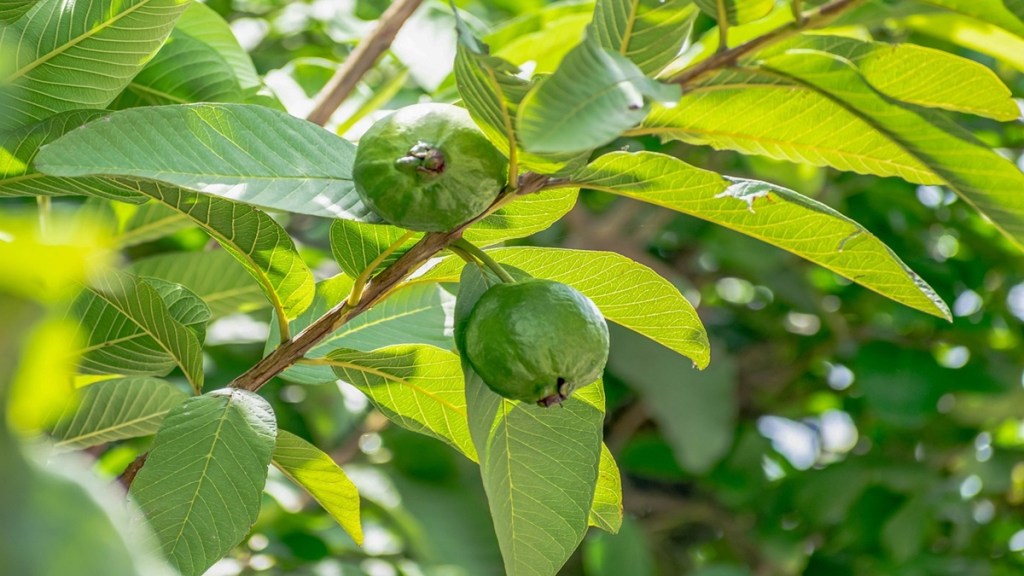Guavas are tropical fruits that originated from Central America. According to a report by Healthline, Guava fruit and leaves contain nutrients, including vitamin C and potassium, that may help support your heart, digestion, and other body systems.
It is noteworthy that Guava fruits are amazingly rich in antioxidants, vitamin C, potassium, and fibre. Interestingly, Guava leaves also has many benefits and it has been a part of traditional medicine for centuries.
Guava leaves are one of the richest sources of vitamin C (roughly 103 mg per 100 g). It also a good source of minerals such as calcium, potassium, magnesium, and iron. They are also rich in polyphenolic compounds such as quercetin, catechin, and gallic acid, which are well-known for their strong antioxidant properties.
What are the benefits of Guava leaves?
Guava leaves have many benefits like:
- Guava leaves has many antibacterial properties and high fibre content, which may promote gut health, relieve constipation, and enhance overall digestion.
- Guava leaves may help stabilise blood glucose levels. This makes them highly beneficial for people diabetes or those at risk, by preventing significant spikes in blood sugar after meals.
- Guava leaves may strengthen the immune system, helping the body fight infections and diseases more effectively with its high antioxidants and vitamin C levels.
- Guava leaves can lower bad cholesterol (LDL) while raising good cholesterol (HDL), thus promoting cardiovascular health and reducing heart disease risks.
- The antioxidants in guava leaves may help neutralise free radicals, potentially reducing the risk of cancer by preventing cellular damage.
- Guava leaves can also help women with menstrual cramps more effectively than some conventional painkillers, providing natural relief for women experiencing dysmenorrhea.
What are the side-effects of Guava leaves?
A study published in Food & Function estimate that therapeutic doses of quercetin would require consuming multiple grams of guava leaves daily. This can be impractical and potentially harmful approach due to tannin-related side effects.
